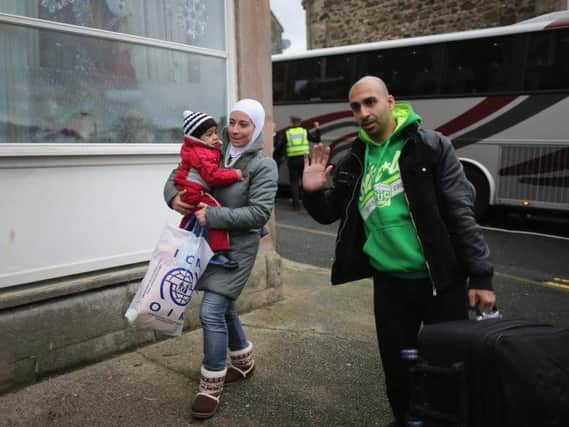Call for human rights strategy to help asylum seekers


The report, published by a partnership of organisations including the Refugee Survival Trust and the Scottish Refugee Council through the Destitute Asylum Seeker Service, which works with people who have been refused asylum to find a route out of destitution, called for the Scottish Government to create a human rights strategy to tackle migrant destitution.
Home Office figures suggest there could be as many as 1,000 people in Scotland who have been refused asylum and are at risk of destitution. People in this situation are not allowed to work and are not eligible for any mainstream benefits including state provided accommodation.
Advertisement
Hide AdAdvertisement
Hide AdThe report highlighted the barriers people face when trying to exercise their rights including accessing education, health and social care services and pointed to the need for national guidance for public sector staff who work with people who are destitute.
Graham O’Neill, policy officer at the Scottish Refugee Council, said: “Destitution really means absolute, abject poverty. It’s an urgent human rights concern that so many people in Scotland are forced into this situation. “We all have the right to safety and the basics of a dignified life, including housing, food, clothing, medical care, social services, and financial support. But this research shows that people who are refused asylum are blocked from having their basic needs met."
Cath McGee, DASS project manager at the Refugee Survival Trust said: “When basic needs are not met people can’t make progress with their legal case. People who are made destitute
have to focus their time and energy on the day-to-day struggle of finding their next meal and a place to sleep so are unable to concentrate on progressing their legal claim for protection."
She added: Very quickly, people become trapped and finding a route out of destitution becomes increasingly difficult as their mental and physical health deteriorates.”
Research assistant Saadatu Adam has experienced destitution in Scotland. She said: “As an asylum seeker I was not allowed to work and at one point, my kids and I were on the verge of being homeless because I could not pay the bills. We had to depend on friends and foodbanks to survive. Public transport is so expensive and without access to any cash it can be impossible to get around.
"My son couldn’t get a space at a school near where we stayed and his school is over an hour’s walk away. My lawyer is based in the city centre so attending appointments with her can be very difficult. I think human rights and children’s rights should be to the forefront. No child should be made to feel isolated or different because of their situation.”